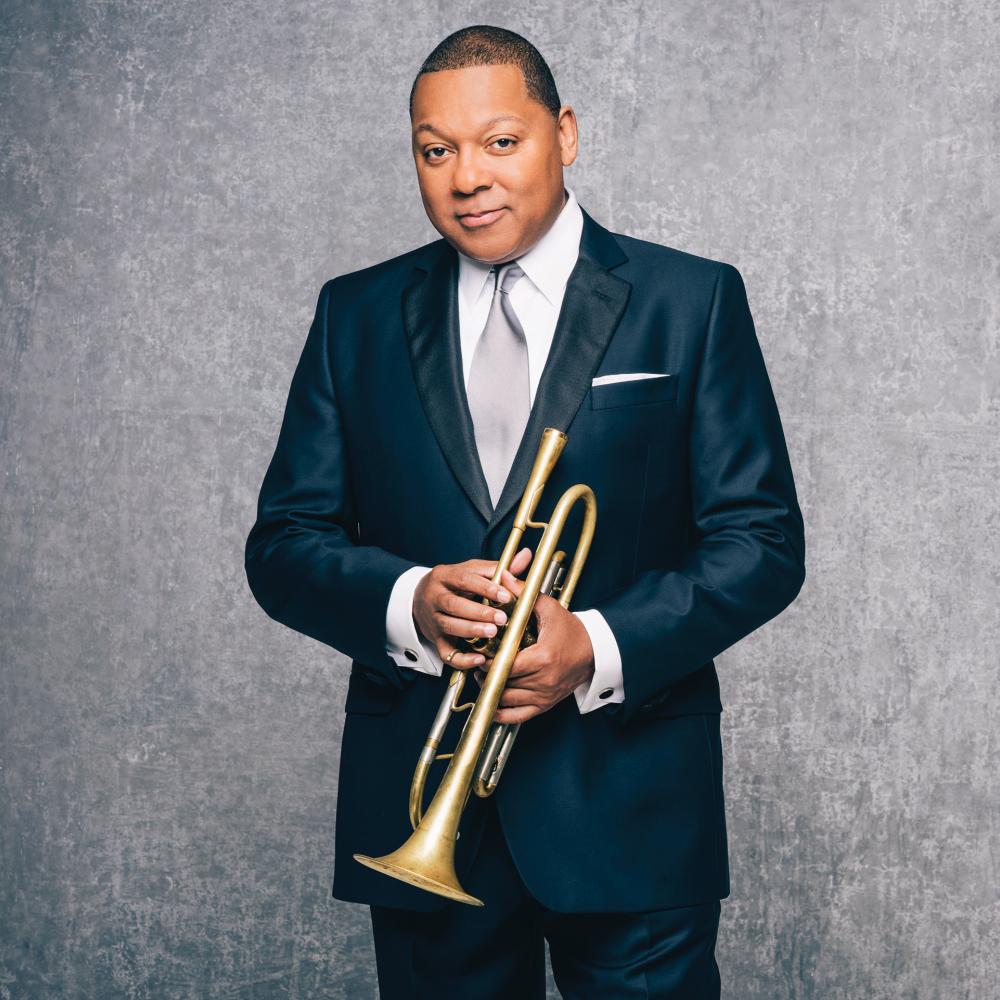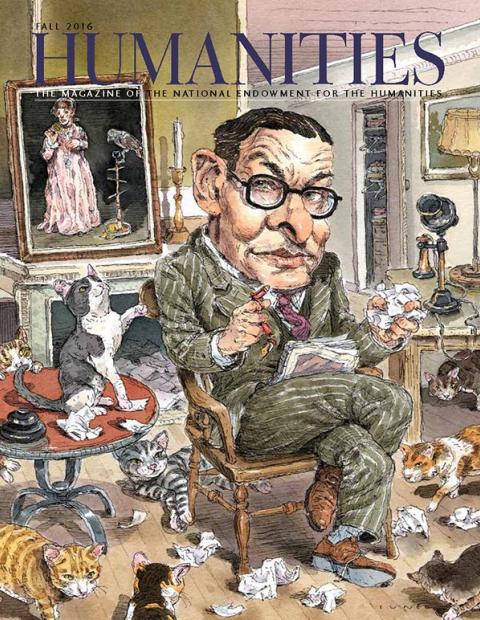“Jazz music is America’s past and its potential, summed up and sanctified and accessible to anybody who learns to listen to, feel, and understand it. The music can connect us to our earlier selves and to our better selves-to-come.” The award-winning trumpeter, bandleader, composer, and educator Wynton Marsalis wrote those words in his 2008 book Moving to Higher Ground: How Jazz Can Change Your Life. And for the three decades or so since he came on the scene those words have been made manifest by his tireless dedication to spreading the gospel of jazz.
By now, the story of his artistic ascension is well known. He grows up in and around New Orleans, a son of Ellis Marsalis, a legendary pianist and educator. Three of his five brothers are also musicians: saxophonist Branford, trombonist/producer Delfeayo, and drummer Jason. Around the age of six, Marsalis takes up the trumpet, later begins playing in funk groups, marching bands, and local orchestras. At twelve, while excelling in the classical idiom, he gets hooked on jazz after listening to John Coltrane. A stellar graduate of the New Orleans Center for Creative Arts, he wins a scholarship to Juilliard, plays with Art Blakey’s Jazz Messengers, and signs an unprecedented deal with Columbia Records. He becomes, in 1983, the first musician to win Grammys in both jazz and classical music in the same year. He records over 80 jazz and classical albums, and is awarded the Pulitzer Prize in Music for his sprawling, 1997, slave-themed jazz oratorio Blood on the Fields. His record output ranges from the Young Lions/neo-bop classic Black Codes (From the Underground) to the spare, sensual swinging J Mood, to the metropolitan ballet Citi Movement. His latest CD, The Abyssinian Mass, brims with the hues and grooves of the black church.
“Every recording I make, I look at the whole record as a form,” he told Lolis Elie in the journal Callaloo. “I try to put the tunes together so that each one has a different effect on the listener, and each tune will progress to the next.”
Marsalis has drawn on the past while shaping the future of jazz. His trumpet sound combines Clifford Brown’s sterling tone, Louis Armstrong’s Crescent City colors and power, and Miles Davis’s spatial, Harmon-muted melodicism. The intense marketing of his clean-cut image was the spark that ignited the so-called “Young Lions” period of the eighties, when a host of young revivalist jazz musicians opened a hot debate over the tradition and future of jazz. Of course, Marsalis brought much more than an image. He brought an insistence on playing no nonsense, straight-ahead acoustic jazz, instead of the fusion music that was popular then.
An evangelist for jazz music, Marsalis co-formed Jazz at Lincoln Center in 1987. It became the world’s largest not-for-profit organization devoted to jazz, founded with esteemed novelist and literary/cultural critic Albert Murray and Murray’s then-protégé, writer and essayist Stanley Crouch. They mentored Marsalis when he came to New York and broadened his knowledge of jazz history, literature, and art. As managing and artistic director, Marsalis leads the Jazz at Lincoln Center Orchestra, as they “entertain, enrich and expand a global community for jazz through performance, education and advocacy.”
Indeed, ever since he was a senior in high school, Marsalis—like his father—has been teaching music with a dedication that has inspired musicians for a generation, as evidenced by the Jazz at Lincoln Center Orchestra bandmates Marsalis taught when they were teenagers.
“You have to follow your young leadership, too,” he told Tavis Smiley. “I get so much from having the opportunity to interface with the younger people, and to bring information to them, and to represent our culture and our way of life. And the feeling, and the warmth and the love . . . it’s unbelievable.”
An inspiration to others, Marsalis is himself inspired by the act of performing and the tradition he draws on. “The music can teach you how to be a better citizen in the world; to be better to yourself, and how to expand your worldview, in a world that is expanding all the time,” Marsalis told Ebony.com. “The more expanded your worldview is, the more confident you are in your cultural achievements, and in yourself. . . . Through improvisation, jazz teaches you about yourself. And through swing, it teaches you that other people are individuals too. It teaches you how to coordinate with them.”


